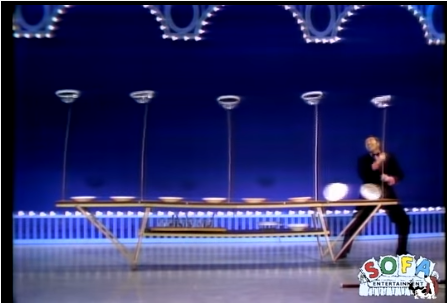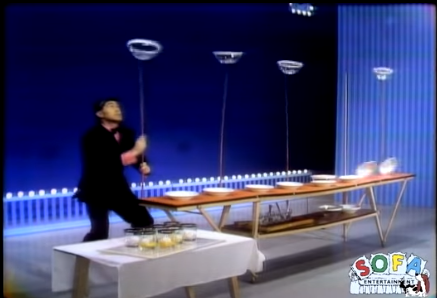It’s Up to You How Many You Spin
This title might seem familiar, and it should. I used a very similar one for a post in March of 2018. That post’s focus was on trying to run a business without a plan.

This post is going to address a different question that has been coming up in almost every construction conversation I’ve had over the past several weeks. These discussions have been with other contractors, sub-contractors, my team, customers, and even with people in other industries. This is not a new topic but seems to be reaching an increased ‘plate breaking’ point.
Most of us have seen plate spinning acts in some form or another. When I was growing up, I remember seeing Erich Brenn performing his plate spinning act on the popular Ed Sullivan Show. I remember him running back and forth, trying to keep all the different plates spinning at the same time. It was amazing. (Be sure to watch this video)
I’ll bet you’ve felt just like him.
Most businesses are operated in a way that feels a lot like trying to keep all those plates spinning at the same time. Just like the performer who keeps putting more and more spinning plates up on the end of sticks, we keep trying to do more and more.
There is a limit to how much we can do. We can only run back and forth keeping the plates spinning for so long before they start falling and breaking. This means there is a maximum number of people that we can provide service to, before things begin falling around us.
Why do we continually keep adding more plates?

That is the million-dollar question. There seems to be some inherent traits that self-employed people are born with that causes us to continually take on more. I believe that it is directly connected to having a servant’s heart. We have a God given talent that someone needs the benefit of. We instinctively say yes to help those in need of it.
The problem of course, is that there is a limit. A limit to how much we can do, to the amount of time we have each day, to the number of people we can help. And we instinctively know this. When we say yes to that next thing, the voice inside our head says, “How are you going to do that?”. We shrug our shoulders and say yes anyway.
Trying to do everything makes it hard to do anything well.
This is a problem that has been around as long as people have. The question is…What are we going to do about it? How are we going to get this plate spinning madness under control? I keep asking myself this question over and over.
The answer to this question is inside each of us and there are as many answers as there are people asking the question. The answer starts with realizing the problem and recognizing that we have control over it. We can choose to answer it or pretend it doesn’t exist and keep spinning more and more plates.

This is where things begin to get tricky. Looking for and figuring out your answer, the one that is exclusively yours, takes time. I know that you are already too busy spinning plates to add another.
If you don’t spin this plate you will never keep the rest spinning.









